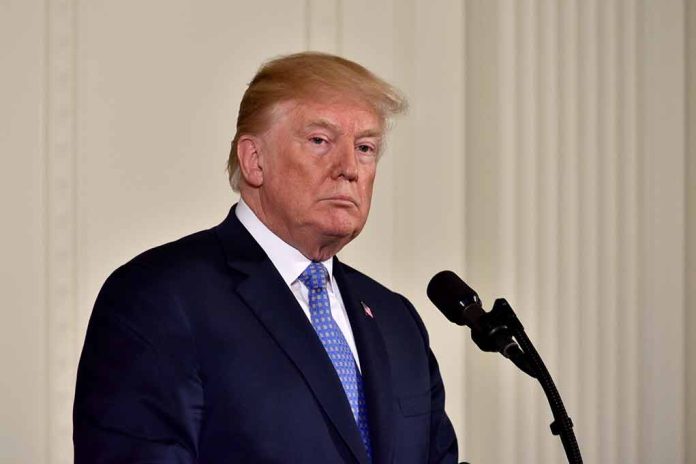
The Trump administration’s decision to end Temporary Protected Status (TPS) for Haitian immigrants puts the future of nearly half a million individuals in jeopardy amidst increasing human rights concerns.
Key Takeaways
- TPS reversal affects around 500,000 Haitians, leading to potential deportations by August 2025.
- A broader effort aims to reduce TPS utilization, a policy expanded by the Biden administration.
- Critics claim TPS renewals have become automatic, exploiting the system.
- Advocates cite inhumane conditions in Haiti, where gang violence and homelessness dominate.
- Efforts to revoke TPS extend beyond Haiti, involving countries like Venezuela.
Reversal of TPS and Its Implications
The Trump administration’s announcement to end TPS for Haitians affects nearly half a million individuals previously safeguarded from deportation. According to Homeland Security, the TPS system has been misused, as evidenced by a surge in eligible Haitians from 57,000 in 2011 to over 520,000 by 2023. This action forms part of a strategy to curb TPS’s scope, which expanded under the Biden administration.
Homeland Security rescinded a Biden-era decision to renew TPS, marking a significant shift in policy. Critics argue that TPS extensions became customary regardless of prevailing conditions in beneficiaries’ home countries. The policy change underscores the administration’s stance on re-evaluating and potentially restricting TPS designations.
Humanitarian Concerns and Community Impact
Advocacy groups warn against the inhumane implications of returning Haitians to a nation plagued by gang violence and instability. Reports indicate 85% of Haiti’s capital is under gang control, with over 1 million people homeless. Amid such turmoil, human rights advocates emphasize the contributions and integration of Haitians into American society, highlighting the severe consequences of potential deportations.
“Nobody is safe in Haiti. This is a disruption of people who have been in this country contributing so much. People have been giving their sweat, their life, the sacrifice to this country.” – Farah Larrieux
Notably, the termination of TPS is not unique to Haitians. The Trump administration has initiated similar actions against Venezuelan immigrants, prompting legal challenges and deepening anxieties within affected communities. The decision raises critical questioning on balancing immigration control with humanitarian obligations.
Future Prospects and Legal Ramifications
As deportation threats loom, the Haitian community and human rights organizations are advocating for reevaluation and potential policy reversals. Pursuing legal recourse, they aim to challenge the administration’s decisions, emphasizing the moral imperative of prioritizing humanity over politics.
“To send 500,000 people back to a country where there is such a high level of death, it is utterly inhumane. We do hope that, because they said that they are going to revisit, that they put politics aside and put humanity first.” – Tessa Petit
The ongoing legal battles and international scrutiny could shape the future of TPS usage in U.S. immigration policy. The plight of Haitian immigrants serves as a critical test case, reflecting broader debates on immigration reform and the balance between enforcement and empathy.







